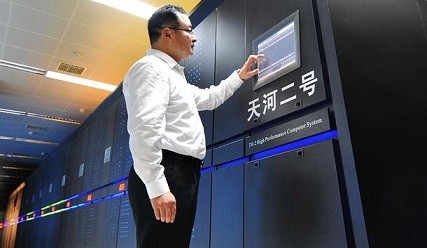Loongson Technology, China’s leading microchip maker, released its newest line of central processing units (CPU) on Tuesday, Aug. 18.
Experts, however, urge the developers to solve bottlenecks first, lest the quad-core processors be overtaken by similar domestic products in international markets.
Loongson Technology is the product of a public-private joint venture between Jiangsu Lemote Tech Co. Ltd. and the Chinese Academy of Science's Institute of Computing Technology (ICT).
The latest CPUs, 3A2000 and 3B2000, are both expected to lift the country's semiconductor industry, which still lags behind its foreign counterparts despite considerable and impressive advancements in technology.
Dong Jielin, a science and innovation expert from Soochow University, attributes this problem to the fact that China's market still lacks maturity.
"A considerable gap exists between chipmakers in China and those in the U.S. The industry in China has been plagued by dishonest practices," said Dong in an interview with the Global Times.
Another problem that contributes to the local semiconductor industry's less-than-stellar performance is that consumers prefer chips that can support other software. Such is the case with Loongson's microchips, which are overshadowed by competition because of its inability to support software like Adobe.
According to Dong, the private sector has also been slow to invest, thanks to issues such as high technological barriers, long payback periods, and high investment risks.
"The government has invested huge amounts of money into the industry. But some companies would misuse the research funds by stealing or buying original designs from other companies."
Since China launched its first processor in 2001, the country has been taking big steps in the industry, thanks to incentives and government support. China's pride, the Tianhe-2 supercomputer, has been listed on the TOP 500 list as the world's fastest supercomputer in the past three years.
Dong believes that the development of the country's semiconductor industry will further allow China's tech industry to grow and develop more cutting-edge technology.



























